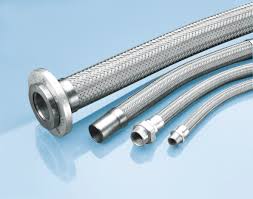If you’re looking for providers that can bring you a high quality hydraulic hose Denver should be one of the first places in Colorado where you should look. These hoses are designed for a variety of hydraulic industrial applications, and depending on their construction, they can withstand heat, pressure and temperature changes extremely well.
What Is a Hydraulic Hose?
A hydraulic hose is an extremely important component in hydraulic systems. It is designed to transfer hydraulic fluid between various other components such as valves and actuators. Typically flexible and often reinforced with materials like steel or fiberglass, hydraulic hoses are usually able to operate at extremely high temperatures and in high pressure conditions.
Some of the main parameters you should keep in mind when searching for the right type of hydraulic hose in Denver include the hose’s size and dimensions, construction specifications, reinforcement options and performance specs.
The main features of hydraulic hoses you should keep an eye out for should include their flexibility and capacity for elongation and compression, their flame-resistant and explosion-proof qualities and their integral end connections. As long as you have knowledge of these features and the main performance specifications of the hose you need, finding a reliable provider in Denver who can give you precisely what you want will be extremely easy.
The Main Types of Hydraulic Hoses
When you’re in the market for a hydraulic hose, Denver experts will usually point you to learn more about the various types of hoses available. The following are some of the main varieties of industrial grade hydraulic hose designs that you might want to consider for your applications:
• Teflon behaves similarly to steel, but without the same cumbersome properties that make steel an overall poor choice. However, if you reinforce Teflon with steel, you can get excellent heat resistance. This type of hydraulic hose is commonly found near boilers or furnaces.
• Compared to metal hoses, reinforced rubber hoses are much more lightweight, which can make a big difference if the hydraulic system has to be moved. Rubber hoses stand up to heat very well, and are sometimes also reinforced with fiberglass or steel mesh, for added support.
• Return lines bring fluids back to the pump, where pressure is often released. There is no special type of hose required for this function, and even more affordable hydraulic hoses can do the job fairly well. However, maintenance and timely replacements are extremely important in this case.
• Coiled hoses make for easy storage and maintenance. Again, the material of the hydraulic hose is not very important, but their special construction makes coiled hoses ideal for repair shops, auto shops and welding shops.
• Corrugated hydraulic hoses are similar in function to expansion joints in a hydraulic system. They can easily withstand high pressure surges, and they can also be used for a variety of purposes associated with sudden temperature changes.
As you can see hydraulic hoses can be extremely useful and diverse. Depending on their construction and function, they can be indispensable in the case of a variety of complex industrial applications involving hydraulic systems.
